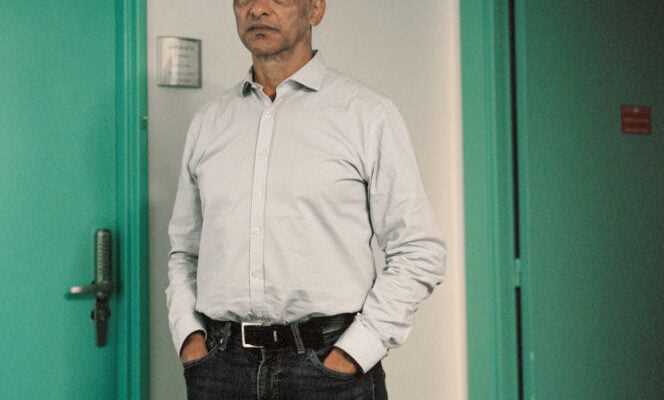Serge Romana is a geneticist, head of the histology, embryology and cytogenetics laboratory at Necker Hospital in Paris. He is also the descendant of Juliette and her son, named Volange Charles, born slaves in Guadeloupe, freed on September 14, 1848, respectively at the age of 30 and 2, and endowed with abruptly of the surname Romana. These two parts of himself – the professor of medicine forged in the crucible of republican merit and the heir to a painful memory – are inseparable. At the age of 66, the news comes to slap him on these two fronts of his identity.
Science first. It was for her that the kid from Le Moule left his native island at the end of the 1980s. Seduced by genetics, “a domain then in full revolution, he settled permanently in France. But, when the Covid-19 pandemic overwhelmed the planet, Serge Romana was appalled by the resistance to organized vaccination in the West Indies. The blocking of hospitals and the attacks on health personnel revolt him. “I am a doctor and a doctor cannot stand born not to be able to heal people, he assures.
In the media, on the professional site covidurgenceoutremer.com, which he created with other overseas caregivers, he multiplied, from August 2021, calls and declarations, sometimes overwhelmed, sometimes peremptory, to denounce the “health disaster”, L’“human slaughter”, but also the “cloak of obscurantism” at work on site. At the beginning of January, he took part in a demonstration in Pointe-à-Pitre against the blockades. He has become one of the targets of antivax, who caricature and threaten him on social networks. “I have thick skin” he sweeps.
A landmark march
Serge Romana knows well what are the causes of this sling against Pfizer and others. “As elsewhere, there is fear of vaccines, he explains. Added to this is an explosive social situation, a distrust of the population vis-à-vis the authorities linked to the history or contamination with chlordecone [ce pesticide toxique a été utilisé aux Antilles jusqu’en 1993, alors qu’il était déjà interdit en métropole]. There is also an overestimation of the traditional pharmacopoeia. »
To this are added “manipulation of opinion” that he attributes to separatist trade unionists. He knows them, these island nationalists. At the age of 20, he traveled the countryside to “sell independence”. And then he concluded that he was wrong, maybe in the fight, for sure in the story. “We used the experience of Africa or Algeria on our island. However, their past was not the same. We were the product of slavery. Our birth is a crime against humanity. » decided to be “a Frenchman born into slavery”, he therefore broke – radically – with his sovereignist ideas and devoted himself to another fight, just as arduous, that of memory.
You have 48.92% of this article left to read. The following is for subscribers only.
